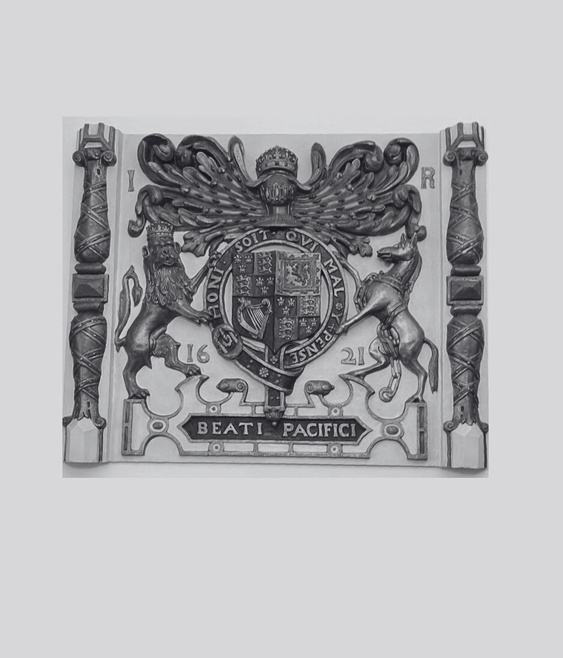About
Gevander Trade Finance was founded by Gerrit van Deventer in 2024, driven by his first hand experience as a sole trader and his unwavering belief in the critical importance of cash flow for family-owned businesses. Gerrit's deep-rooted commitment to empowering sole traders and small business enterprises brings a wealth of practical knowledge and expertise, underlining the significance of sound cash flow for the success of sole traders and family-owned businesses in today’s marketplace.
With a profound commitment to excellence and a keen understanding of the challenges faced by SMEs, Gerrit envisioned revolutionising the trade finance landscape for small businesses in the UK. Partnering with brokers, Gerrit gained access to a diverse range of lenders, including boutique finance houses, offering a comprehensive suite of services aimed at providing flexible and accessible financial

solutions. This focus is directed at supporting SME business owners in better understanding and managing cash flow in their businesses.
At Gevander Trade Finance, we understand that every business is unique. Our mission is simple: to provide personalised financial solutions that match your needs, whether it's asset finance, invoice finance, lease finance, business loans, or development finance. We're here to guide you through the process, building lasting relationships based on trust and respect. By deeply understanding your business goals, we create tailored solutions that drive growth and ensure financial stability, ultimately bolstering local economies.
We are here to serve as your trusted partner, dedicated to helping you achieve your business goals and maximize your entrepreneurial success.
Services
Merchant Services
Tools and systems facilitating payments via credit/debit cards, and mobile payments like Apple Pay or Google Pay
Invoice Factoring
Unlock cash flow tied up in unpaid invoices
Currency Transfers
Allows businesses to send and receive money in different currencies
Asset Finance
Allows businesses to acquire assets (equipment, vehicles, machinery or technology) without full upfront payment:
Business Loans
Provide small businesses and sole traders with access to capital
Bullion ( Silver & Gold )
Convert cash into secure assets like gold and silver
Lease Finance
Access assets without ownership: lease equipment, furniture, tools, vehicles, technology . . . . .
Development Funding
Financing designed to support property development projects
Wealth Trusts
Safeguard generational wealth through trusts in secure jurisdictions
Merchant Services
Merchant Services encompass, tools and systems facilitating payments via credit/debit cards, and mobile payments like Apple Pay or Google Pay.
This allows you to receive payments for your products or services seamlessly, eliminating the need for cash transactions.
Here's how it works: When a customer pays with their card or mobile device, the payment information is securely transmitted to a payment processor. The processor then verifies the transaction with the customer's bank. Once approved, the funds are transferred to your business account.
Using Merchant Services streamlines your payment process, making it faster and more convenient for both you and your customers. Whether you operate a physical store, an online shop, or both, Merchant Services can help expand your customer base and boost sales.
In summary, Merchant Services are essential for any small business or sole trader aiming to thrive in today's digital marketplace. By offering customers cashless payment options, you enhance their shopping experience, leading to increased satisfaction and business growth.
Merchant Services
Case Study 1:
Plumbing and Heating Contractor
John Doe, the owner of a small plumbing and heating business, often found himself juggling cash flow due to the seasonal nature of his business. To address the cash flow challenges created by busy periods in the winter and slower months in the summer, John sought a flexible payment solution. Merchant Services offered John Doe the plumber a Merchant Cash Advance (MCA), providing him with a solution to leverage his monthly credit card transactions.
John was able to access funds using an MCA to cover expenses during slower periods without the burden of fixed repayment schedules. He experienced improved cash flow, allowing him to focus on delivering quality service to his customers rather than worrying about financial fluctuations.
Merchant Services
Case Study 2:
Restaurant and Catering Business
Emma owns a thriving restaurant. However, she struggled with unpredictable sales patterns that affected managing cash flow, especially during off-peak seasons. Seeking a solution, Emma turned to Merchant Services upon learning about the Merchant Cash Advance (MCA).
Emma realised it was the perfect fit for her business. With repayments tied to her monthly credit card transactions, it could ease the strain on her cash flow and reinvest in her restaurant's growth during slower periods. With a MCA she maintain operations smoothly, without the stress of rigid repayment schedules.
Merchant Services
Case Study 3:
Vending Machine Repair Service
Mario runs a successful vending machine repair business, serving clients across the UK. Despite steady demand for his services, Mario faced occasional cash flow challenges due to the irregularity of client payments and unexpected expenses. To address this issue, Mario explored alternative financing options.
After learning about Merchant Cash Advance (MCA), Mario opted for an MCA solution so he could access funds based on his monthly credit card transactions, providing him with the flexibility to cover expenses during lean periods without the constraints of fixed repayment terms. This allowed Mario to focus on delivering exceptional service to his clients while ensuring the financial stability of his business.

Asset Finance
Asset Finance is a type of funding that allows businesses to acquire assets such as equipment, machinery, vehicles, or technology without having to pay the full purchase price upfront. Instead, the cost of the asset is spread out over a set period, typically through monthly payments.
Here's how it works: When a business needs to invest in an asset but doesn't have the immediate capital to make the purchase, they can use Asset Finance to spread the cost over time. This can be particularly beneficial for small businesses and sole traders who may have limited cash flow or prefer to preserve their capital for other business needs.
There are different types of Asset Finance options available, including Hire Purchase, Finance Lease, and Operating Lease. Each option has its own advantages and considerations, such as ownership of the asset, tax implications, and flexibility of repayment terms.
Using Asset Finance, businesses can access the equipment and resources they need to grow and operate efficiently, while spreading the cost in a manageable way. Whether you're looking to upgrade your machinery, expand your vehicle fleet, or invest in new technology, Asset Finance can provide the solution you need to drive your business forward.
Asset Finance
Case Study 1:
Electrical Renewable Energy Contractor
Emily runs a sole electrical business focusing on renewable energy installations such as heat pumps and solar panels. To meet the increasing demand for sustainable energy solutions, Emily needs to invest in specialised equipment and technology. Asset Finance offers her a viable option. Emily chooses a Hire Purchase agreement, allowing her to acquire the necessary machinery, equipment, tools and vehicles while spreading the cost over time. With access to the latest renewable energy equipment, Emily can expand her services, attract more clients, and contribute to a greener future all without the burden of upfront capital investments
Asset Finance
Case Study 2:
Tool Hire Business
David operates a tool hire business and wants to expand his inventory to meet customer demand. However, purchasing new equipment outright would strain his cash flow. Asset Finance provided the perfect solution. David chooses to refinance existing assets to release capital, which he reinvests into acquiring additional tools and machinery. This enabled him to offer a wider range of equipment to his customers, increase revenue, and maintain a competitive edge in the market by opening another tool hire store
Asset Finance
Case Study 3:
Fiber (FTTH) Installation Company
Leonel owns a Fiber-to-the-Home (FTTH) installation company. As demand for reliable internet services grows, Leonel needs to invest in specialised equipment for fiber blowing and joining to expand his operations efficiently. Asset Finance offers a solution via Hire Purchase, enabling him to acquire essential tools to meet project deadlines and maintain service quality. With access to advanced equipment, Leonel acquired he can now enhance his company's capabilities, fulfil customer demand, and stay competitive in the fast-paced telecommunications industry, all without the upfront financial strain.
Lease Finance
Lease Finance is a type of funding that allows businesses to Access assets without ownership: lease equipment, furniture, tools, vehicles, technology . . . . . without having to purchase them outright. Instead, the business enters into a lease agreement with a leasing company, paying regular rental payments for the use of the asset over a set period.
Here's how it works: When a business needs to acquire an asset but prefers not to tie up capital or take on the risk of ownership, they can opt for Lease Finance. The leasing company purchases the asset and leases it to the business for an agreed-upon period. During the lease term, the business pays fixed rental payments, making it easier to budget and manage cash flow.
Lease Finance offers flexibility, as businesses can choose from various lease options, including operating leases and finance leases. Operating leases typically offer lower monthly payments and allow businesses to return the asset at the end of the lease term. Finance leases, on the other hand, may provide the option to purchase the asset at the end of the lease term for a predetermined price.
Using Lease Finance, small businesses and sole traders can access the assets they need to grow and operate efficiently, while conserving capital and preserving credit lines.
Lease Finance
Case Study 1:
Dental Practice
Dr. Lee owns a small dental practice, recognised the need to upgrade the office computer equipment to improve patient record management and streamline administrative tasks. At the same time he wants to modernised the dental equipment. However, this modernisation project would strain the practice's cash flow, especially with other ongoing expenses.
By utilising Lease Finance, Dr. Lee was able to do the dental practice modernisation without the need for a large upfront investment, paying fixed monthly payments that made it easier to manage the practice's budget. This allows Dr. Lee to enhance patient care, improve record-keeping and staff productivity, maintaining a competitive edge in the dental industry, all without the financial burden of upfront costs.
Lease Finance
Case Study 2:
Office Furniture and Fit-Out
Linda operates a specialised office furniture and supplies fit-out business, catering to corporate clients with high-quality furniture and equipment. With the demand for modern office spaces, especially hybrid workspaces increasing, requiring Linda to invest in various pieces and office equipment. However, purchasing these items outright would strain her cash flow and limit her ability to invest in other business areas.
To efficiently managing cash flow, Linda utilised Lease Finance which allowed her to acquire the necessary furniture and equipment without a significant upfront payment and investing in essential assets through lease agreements, a strategic approach that attracted more corporate clients and positioned Linda's business for growth.
Lease Finance
Case Study 3:
Fleet Vehicles
David runs a plumbing business and needed to expand his fleet of vehicles to meet growing customer demand across different locations. However, purchasing new vehicles outright would strain his cash flow and limit his ability to invest in other areas of his business.
By opting for Lease Finance, David was able to acquire the fleet vehicles he needs without a large upfront payment. Through a lease agreement, David pays regular rental payments over the lease term, allowing him to spread the cost of the vehicles over time. This enables David to expand his service area, improve response times, and provide better service to his customers, all without the financial burden of purchasing vehicles outright.
Invoice Factoring
Invoice Factoring is a financing solution that helps businesses unlock cash flow tied up in unpaid invoices. Here's how it works:
- You provide goods or services to your customers and issue invoices with payment terms (e.g., net-30).
- Instead of waiting for your customers to pay, you sell your unpaid invoices to a factoring company at a discount.
- The factoring company advances you a percentage of the invoice value, typically around 70-90%.
- Once your customer pays the invoice, the factoring company releases the remaining amount to you, minus their fee.
Invoice Factoring offers several benefits for small businesses, including improved cash flow, faster access to funds, and reduced risk of late payments or bad debts. It's a flexible financing option that can help you manage day-to-day expenses, invest in growth opportunities, and maintain stability in your business operations.
Whether you're a sole trader or a small business owner, Invoice Factoring can provide the financial flexibility you need to thrive in today's competitive market. By leveraging your accounts receivable, you can access the capital you've already earned and drive your business forward with confidence.
Invoice Factoring
Case Study 1:
Sheltered Accommodation Provider
Leonel operates a staging and fit out business catering to sheltered accommodation and retirement home providers, requiring upfront investment in inventory to furnish units. However, waiting for payment from client’s strains cash flow and hampers growth potential.
By embracing Invoice Finance, Leonel found a solution to his business cash flow challenges. Partnering with a trusted provider, he secured advances on outstanding invoices, swiftly accessing funds to procure inventory and cover operational costs. This empowered Leonel to sustainably manage cash flow, size growth opportunities, and continue delivering exceptional services to his clients, without the financial strain of delayed payments.
Invoice Factoring
Case Study 2:
Data Centre Commissioning and Maintanance
Stephen operates a data server business specialising in building data centres, fitting and maintain servers. To meet increasing demand and expand operations, he needed to invest in additional server equipment and infrastructure. However, purchasing these assets outright would strain his cash flow and limit his ability to invest in other areas of his business.
By opting for Lease Finance, Stephen can acquire the necessary server equipment and infrastructure without a large upfront payment. Through a lease agreement, Stephen pays regular rental payments over the lease term, spreading the cost of the equipment over time. This allows him to expand his services, accommodate more clients, and enhance his data centre capabilities, all without the financial burden of upfront equipment purchases.
Invoice Factoring
Case Study 3:
Fibre to the Home Contractor
Roco, a small business owner, secured a Tier 2 contract on a gigabit city FTTH (Fibre-to-the-Home) project. With this opportunity come the need to invest in specialised equipment and resources to fulfil the contract requirements. However, purchasing the necessary tools outright would strain the business cash flow and hinder his ability to deliver against payment milestones on the project, as full supply chain finance was not in place from the start.
Opting for a lease agreement, Roco make smaller payments and build his credit ultimately enabling him to set up supply chain finance. Allowing him to fulfil his contract obligations, expand his business, and take on additional projects without facing the financial burden of outright equipment purchases as he mobilised his teams and started the FTTH project delivery.
Business Loans
Business Loans are designed to provide small businesses and sole traders with access to capital for various needs, including growth opportunities, cash flow management, and covering unexpected expenses. By understanding how business loans work and exploring your options, you can find the right financing solution to drive success in your entrepreneurial journey, whether it's expanding your business, purchasing equipment, or bridging a temporary financial gap. Here's how they work:
- Application: You apply for a business loan from a bank, online lender, finance broker, or financial institution. You'll need to provide information about your business, such as financial statements, business plan, and credit history.
- Approval: The lender reviews your application, assesses your creditworthiness, and determines whether to approve the loan. This process may involve reviewing your credit score, business revenue, and financial stability.
- Funding: If approved, you receive the loan amount as a lump sum, typically deposited directly into your business bank account. You can then use the funds for various purposes, such as purchasing inventory, equipment, or expanding your business operations.
- Repayment: You repay the loan over time, usually in monthly instalments, plus interest. The repayment term and interest rate may vary depending on the lender and the type of loan you choose.
Business Loans
Case Study 1:
Terminal Care
Harry faced a pivotal moment when his father, the owner of a logistics business, fell critically ill. With his father unable to continue running the business, Harry stepped up to take over the reins and ensure the family legacy continued. However, the business had a co-owner, and Harry needed to buy out their share to retain sole control and keep the business within the family.
Through careful planning and financial assistance from the business loan, Harry successfully acquired his father's partner's share, gaining sole control of the logistics business. By keeping the business within the family, Harry honoured his father's legacy and preserved the values that had guided the company for generations.
Business Loans
Case Study 2:
Carla’s Mobile Coffee Shop
With determination and ambition, Carla embarked on her entrepreneurial journey, by realising her dream of owning der own mobile coffee shop. But soon realised that her start-up funding fell short of what was needed to get her venture off the ground.
Turning to a business loan to top up her start-up funding. With the financial assistance provided by the loan, Carla was able to purchase the necessary equipment, secure permits, and kick-start her mobile coffee business.
Development Funding
Development Funding is a type of financing designed to support property development projects, including construction, renovation, or conversion. Builders, property investors, and developers applying for development funding need to provide the project details, including plans, budgets, and timelines. For the lender to assess the project's feasibility, market potential, and the borrower's creditworthiness. If approved, the lender provides funding to cover project costs, which may include land acquisition, construction materials, labour, and other expenses.
Whether you're building new homes, renovating existing properties, or developing commercial real estate, development funding can provide the financial support you need to bring your projects to life and achieve your business goals. Development funding is typically provided in stages or 'drawdowns' as the project progresses. This ensures that funds are used efficiently and that the project meets milestones and quality standards. The funding gets repaid over time, often through a combination of interest payments and principal repayments. Repayment terms may vary depending on the lender and the specific terms of the funding agreement.
Development Funding offers several benefits for small builders, property investors, and developers, including access to capital for financing project, support for growth, expansion, and the ability to undertake larger-scale projects.
Contact us today to learn more about what Development Funding solutions would fit your business needs.
Currency Transfers
When businesses need to make payments overseas for materials, services, or investments, they can use an international currency transfer service to send money in the recipient's currency. This can include payments for construction materials, manufactured components, import/export shipping, project expenses, or property purchases abroad. International currency transfer services offer exchange rates to convert the sender's currency into the recipient's currency. Rates may fluctuate based on market conditions and can impact the amount received by the recipient.
There may be fees associated with international currency transfers, including transaction fees and currency conversion fees. It's important to consider these fees when choosing a transfer service to ensure cost-effectiveness. Timing: International currency transfers can take varying amounts of time to process, depending on factors such as the destination country, the transfer amount, and the chosen transfer method. It's essential to plan ahead and consider potential constraints.
Contact us today to learn more about what Cussency Solutions would fit your business needs.
Bullion ( Silver & Gold )
Bullion Service, offer high net worth individuals the opportunity to convert their cash into secure assets like gold and silver. In uncertain economic climates, Bullion Service may provide investors alternatives to traditional banking options to safeguard their wealth and preserve their wealth value over time.
Gold and silver are renowned for their stability and protection against economic volatility and inflation. Converting cash into bullion ensures long-term wealth preservation and protection.
By adding bullion to your portfolio, you can store wealth, safeguard it against depreciation and erosion from inflation, diversify across asset classes, and reduce exposure to market fluctuations, currency devaluation, or geopolitical uncertainty.
We understand the importance of privacy and confidentiality when it comes to managing your wealth. Our Bullion Investment Service offers discreet transactions and secure storage options, ensuring that your financial affairs remain confidential and protected.
Contact us today to learn more and start securing your financial future with bullion.
Wealth Trusts

The establishment of the first trusts can be traced back to 1677, with the marriage of heiress Mary Davies to Sir Thomas Grosvenor, the 3rd Baronet of Eaton, in Cheshire, England. With Mary's inheritance of the expansive Ebury Manor, nestled amidst 500 acres of prime land north of the Thames, the Grosvenors embarked on a journey that would redefine the landscape of London. From the development of Mayfair in the 1720s to the expansion into Belgravia in the 1820s, and later Pimlico in the 19th century, their astute management of wealth necessitated innovative financial instruments. Thus, the inception of trusts emerged as a strategic tool, allowing them to safeguard and grow their fortunes across generations, while navigating the intricacies of taxation and inheritance laws. This historical backdrop underscores the fundamental role of trusts in securing financial futures, a tradition that persists to this day, ensuring the preservation and growth of wealth for future generations.
Contact us today and find out how we can help safeguard and grow your wealth through offshore trusts in secure tax jurisdictions for generations.

Gevander
Trade Finance
Contact Us
Duxford Officers Mess, Royston Road, Duxford, Cambridgeshire, CB22 4QH
+44 (0) 7512 349 814
Business Hours
Monday to Friday
9:00 am to 4:00 pm
Follow us on social media
